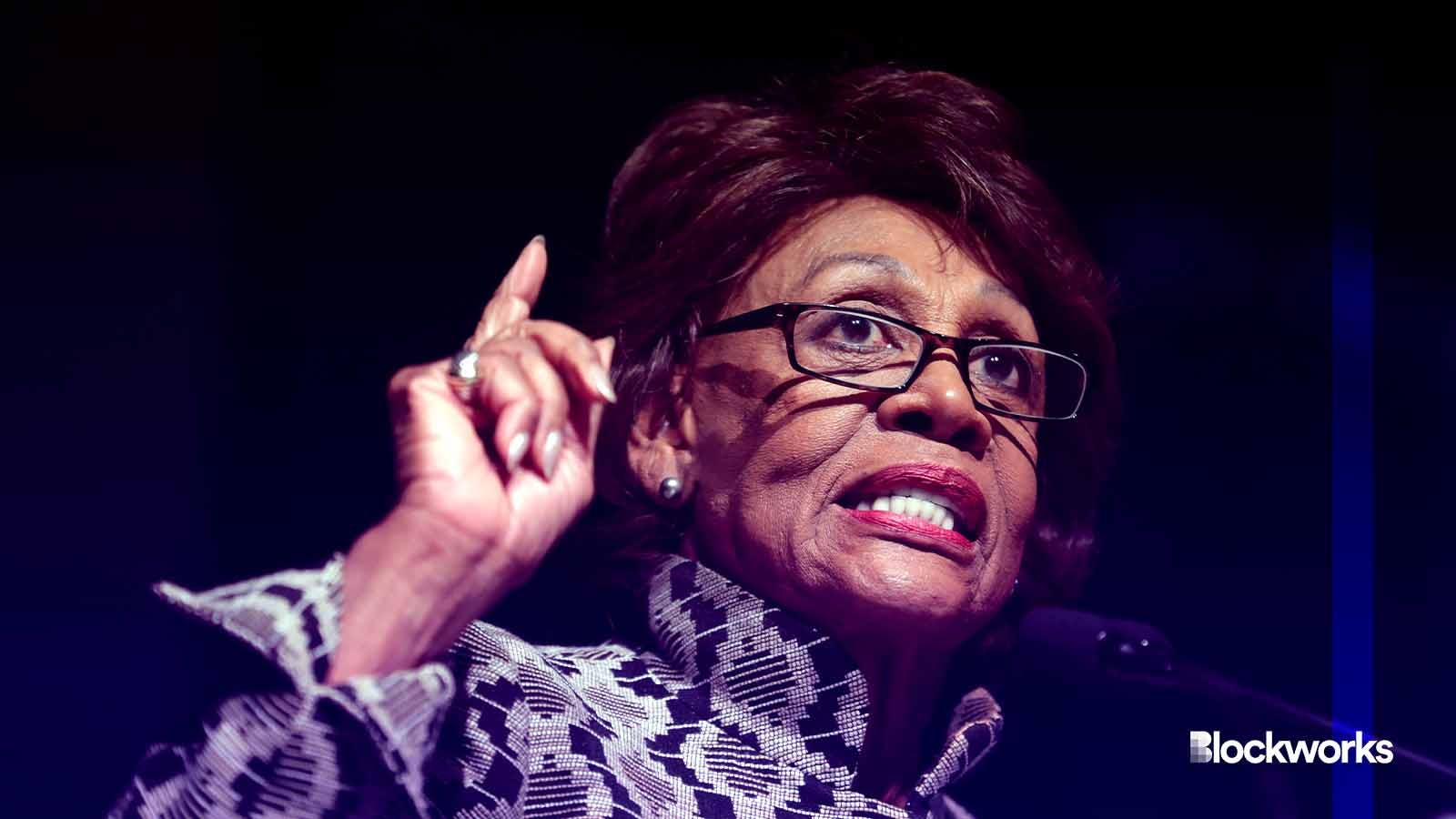House hearing on FinCEN oversight turns into crypto debate
During a House Financial Services Committee hearing Wednesday, several lawmakers opted to use their allotted time to discuss cryptocurrency and its role in illicit finance

US Rep. Maxine Waters | Source: Gage Skidmore/"Maxine Waters" (CC license)
During a House Financial Services Committee hearing Wednesday, several lawmakers chose to shine a light on cryptocurrencies and how they are — or are not — being used to fund illicit activities.
The Committee gathered Wednesday for its Financial Crimes Enforcement Network (FinCEN) and the Office of Terrorism and Financial Intelligence (TFI) oversight hearing. Witnesses were FinCEN director Andrea Gacki and TFI undersecretary Brian Nelson.
Cryptocurrency’s role in financing illicit actors and terrorism has become a hot topic for lawmakers and federal agencies in recent months as officials clash over just how often digital assets are used.
Read more: Lawmakers butt heads on role of crypto in terrorist financing
In an October letter to the National Security Advisor, Democratic lawmakers cited an article from the Wall Street Journal which claimed Hamas had raised “millions” in crypto. Many in the crypto space found the Journal’s statistic troubling, with crypto analytics firm Elliptic saying there was “no evidence” to suggest it was true.
Nelson noted that the Treasury believes this figure is inflated.
“We also assess that terrorists still prefer, frankly, to use traditional products and services, but this is something that we’re obviously monitoring very closely,” Nelson added.
In its 2024 National Risks Assessments, Treasury officials said cryptocurrencies are becoming a greater threat, but fiat still remains the primary tool for money laundering.
Rep. Tom Emmer, R-Minn., asked why, if the Treasury knows many of these figures are incorrect, have officials not set the record straight.
“Treasury has the data to paint the correct narrative of crypto and how it’s used, and instead we have senators who are legislating on these false figures,” Emmer said. “Sure, we can go to Chainalysis and use their third party reporting, but Treasury already has the data so doesn’t Treasury have a responsibility to correct the record here?”
Read more: New crypto-friendly politicians are headed to Washington
Nelson responded that his agency releases “a number of reports” regarding illicit finance and he believes has been clear about their concerns with cryptocurrency.
Rep. Brad Sherman, D-Cali., asked witnesses “what is being done” about cryptocurrency, a financial instrument he says threatens US authority.
“I have opposed cryptocurrencies whose promoters have made it plain that they regard the United States as an illegitimate player on the world stage,” Sherman said. “They regard our sanctions policies [and] efforts to affect world policy as illegitimate…they are promoting crypto in part to defang the United States federal government.”
Gacki said her agency recognizes a “critical need” to regulate and examine all money services businesses.
Ranking member Maxine Waters, D-Cali., called for additional funding for the bureau, saying a larger budget is especially necessary as officials are forced to tackle new threats like digital assets.
To deny the department funds would be “misguided,” Waters said, pointing to recent success of FinCEN with “the record-breaking Binance settlement that will garner 4.3 billion in penalties for the American taxpayer.”
Wednesday’s hearing comes months after FinCEN released proposed rules for cryptocurrency mixing services, which would require regulated financial institutions to report transactions when there is reason to suspect a mixer has been used. The suggestion has many industry members concerned that the agency is overstepping.
Marisa Coppel, head of legal at Blockchain Association, said in a statement last month that FinCEN’s proposal is “far too broad in scope and application.”
In a Jan. 22 letter responding to the proposal, the Blockchain Association argued that FinCEN’s failure to consider the many legitimate uses of crypto mixing makes it “makes it impossible for the agency to rationally conclude that the class is of primary money laundering concern.”
“We received a lot of comments on this proposed rule and we are looking through them all,” Gacki said Wednesday.
Get the news in your inbox. Explore Blockworks newsletters:
- The Breakdown: Decoding crypto and the markets. Daily.
- 0xResearch: Alpha in your inbox. Think like an analyst.






